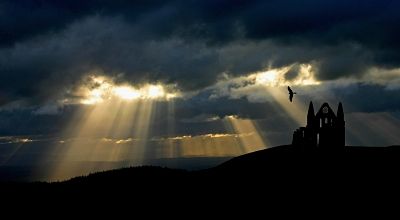Sometimes Jesus talks about realities that His beloved children don’t seem to comprehend. It’s quite common for Him to talk about a realm grander than the imagination. Though difficult to conceive, we’re being invited to somehow re-frame everything in light of His transforming kingdom.
Moreover, when Jesus is talking about all these wonderful things, He isn’t whispering about a sphere beyond the horizon. Instead, He is talking about something that invades the broken world where we presently reside.
In one pivotal New Testament passage, He declares the following,
“Truly I say to you, in the regeneration, when the Son of Man sits on His glorious throne, you who have followed Me will also sit on twelve thrones, judging the twelve tribes of Israel” (Matt. 19:28).
What Jesus is talking about in this passage is largely unfamiliar and outside the typical Protestant narrative. What does the Messiah actually mean when He speaks about the “restoration of creation?” In many ways, it is a radically different perspective from what I heard in Sunday school.
I was guaranteed that all of creation would be annihilated. A darkened day was going to come when the earth would be devastated in a blaze of fire.
I still recall the crooked smile on the preacher’s face when he said that, “This whole god-forsaken place is going to end up like a pile of ashes.” Then the older saints solemnly sang a verse from the 1779 Hymn “Amazing Grace,”
“The earth shall soon dissolve like snow,
The sun forbear to shine;
But God, who called me here below,
Will be forever mine.”
How could Jesus differ so widely from John Newton and the bastions of Reformed theology? Doesn’t He understand anything about “sound doctrine”? In the past, I didn’t think anyone could articulate a biblical eschatology without affirming that the Earth would be consumed by fire. Yet, Jesus shares a different narrative.
The Messiah isn’t recounting a new story in Matthew 19:28, though it may sound like it. His words were actually informed by an older narrative. He was cognizant of an ancient account that informed the Patriarchs and Prophets. Sadly, many evangelicals have lost sight of this foundational story.
Jesus understood that when the Earth was made, it was deemed “very good” (Gen. 1:31a). He was there when His Father made a covenant with the Earth during the time of Noah (Gen. 9:13). As the poets and sages spoke of the earth as an inheritance for the righteous, Jesus heard and agreed with their inspired words (Ps. 37:9, 104:5-31, 115:16). Our Savior envisioned earth’s ultimate goodness and glory along with the other prophets (Is. 11:9; 60:21).
Jesus certainly knew this ancient story and that is why He affirmed the restoration of creation. He was convinced that darkness and evil would be removed and the beauty of God’s original creation would be brought to bear. Everything that can be shaken will be shaken and all that remains will be what God originally made.
Contrary to popular religious sentiment, the world is never going to end. It’s going to be redeemed along with those who love Jesus. Now, that is a wondrous story that we need to tell!
J.K. King is the director of the World Revival Network and associate pastor of World Revival Church.














































